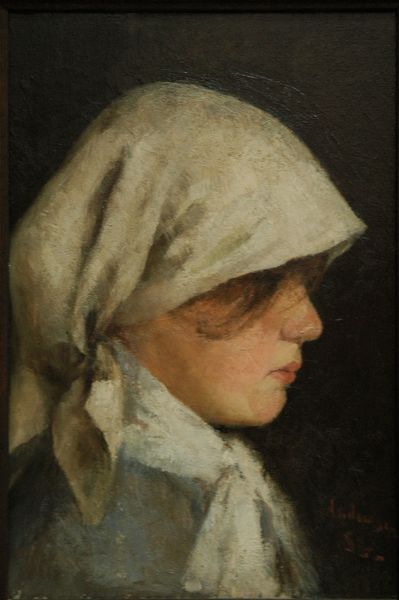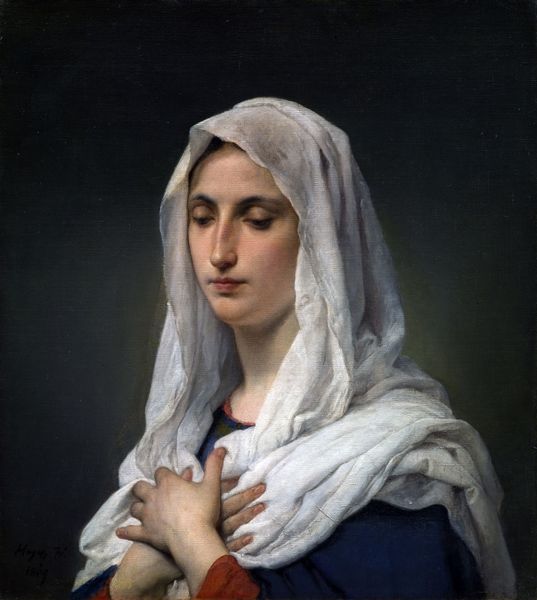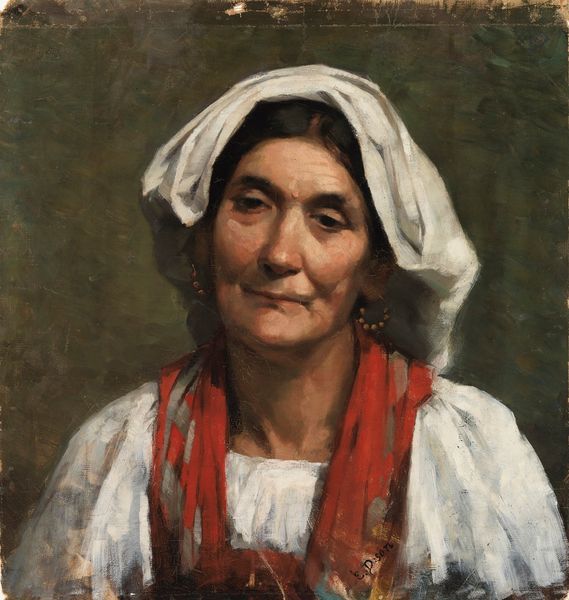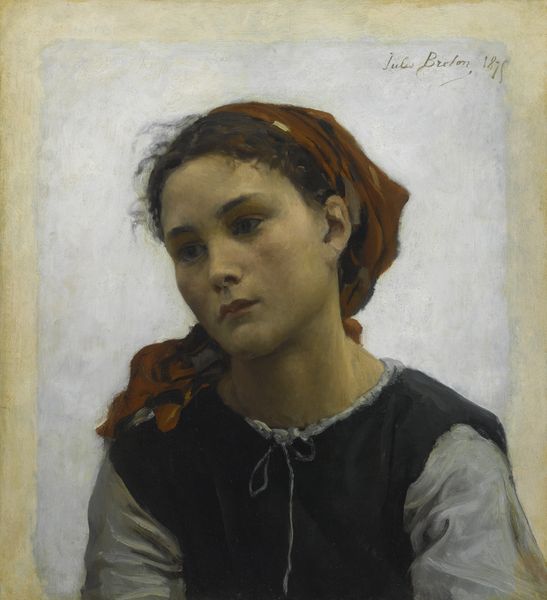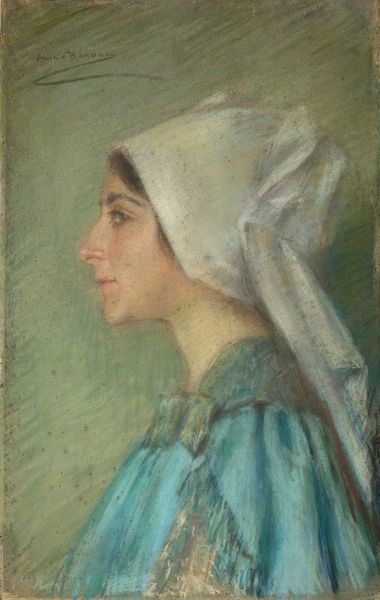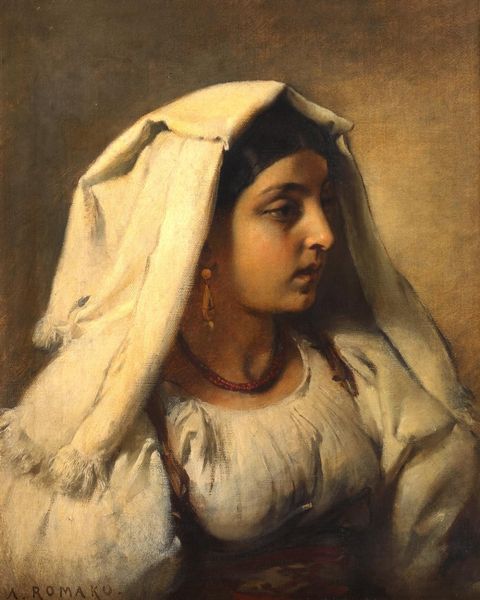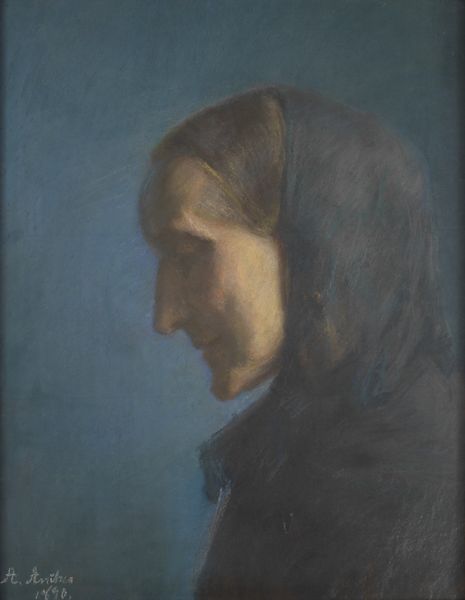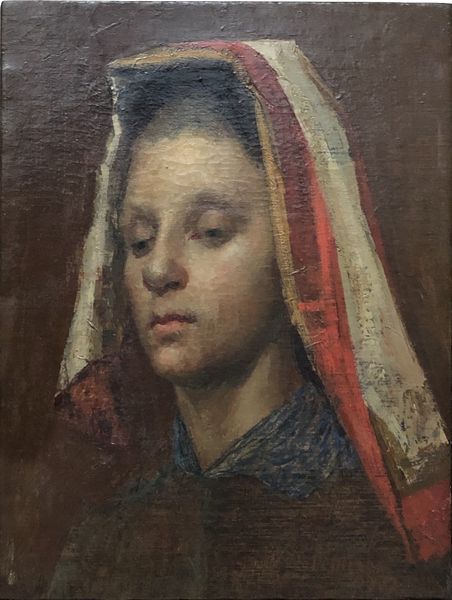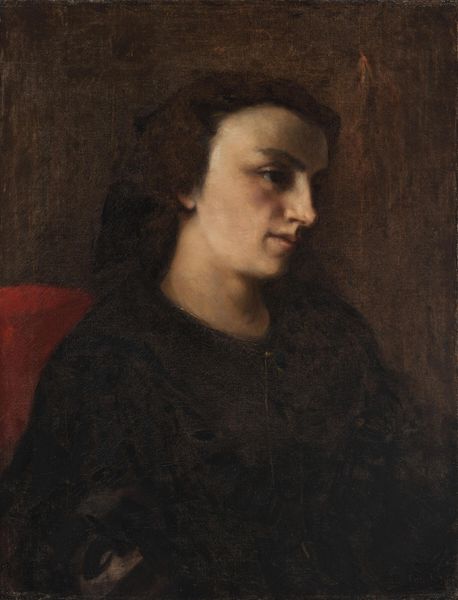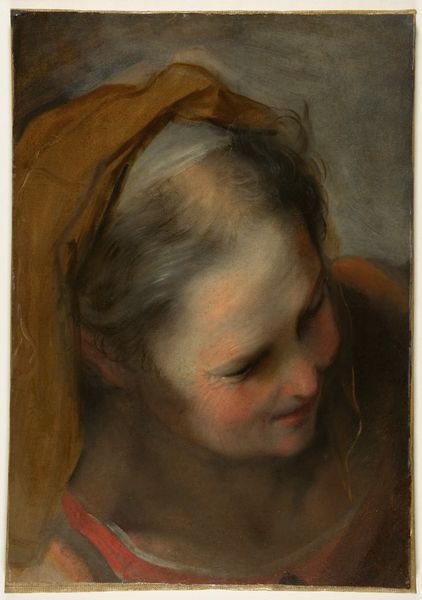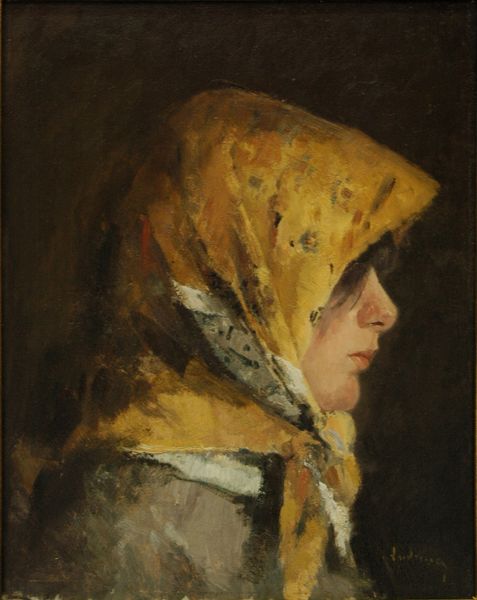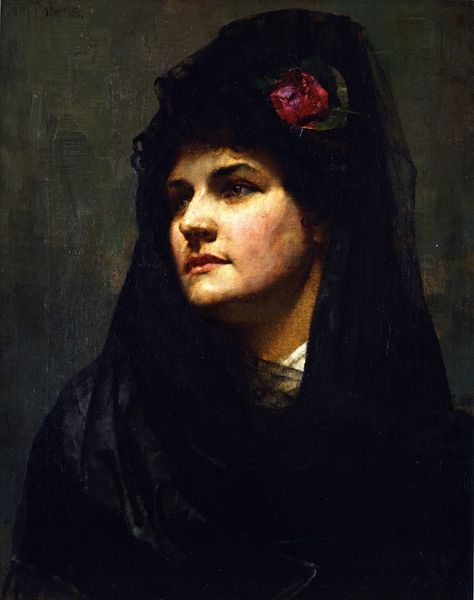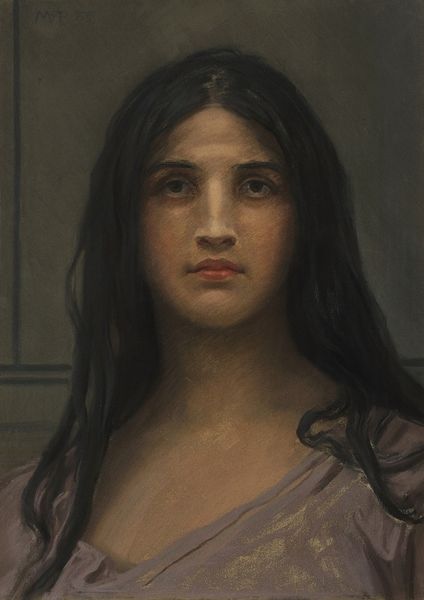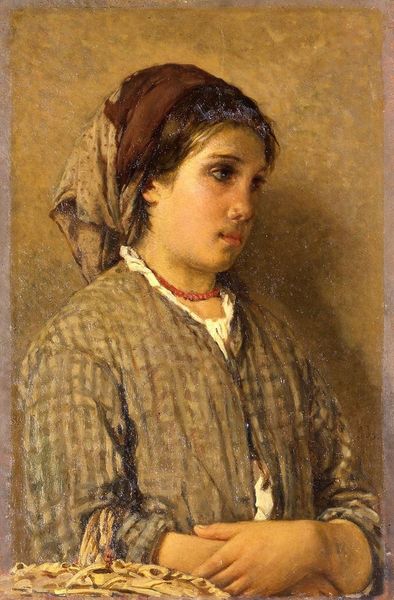
Dimensions: 22 x 19 cm
Copyright: Public domain
Curator: This is Jules Breton’s "Jeanne Calvet," painted in 1865, rendered in oil paint. It's currently part of the collection at the Clark Art Institute. Editor: My first thought is how somber and contemplative it feels. The palette is very restrained, almost monochromatic save for the skin tones and a subtle hint of blue. Curator: Breton was known for depicting rural life, and this portrait exemplifies that. Look closely at the textures; you can almost feel the weight of the woolen shawl and the soft cotton of her headscarf. Editor: The social context is fascinating. Breton exhibited widely, including at the Salons, cultivating an audience eager for depictions of peasant life. He managed to make it romantic and relatable to urban viewers. Was Jeanne Calvet an actual person, or more of a symbolic figure? Curator: That’s the crux of it, isn't it? Whether the labor and lifestyle implied is authentic or constructed for bourgeois consumption. Breton did idealize peasant life, undoubtedly influencing public perception and patronage of similar works. Considering that the art market itself created a need and therefore the aesthetic surrounding such works, it forces us to ask questions about the industry as well as this subject. Editor: It does, doesn't it? But her gaze is unwavering; her expression dignified. There's a subtle political charge just in that refusal to romanticize hardship. The cool objectivity hints at Realism even as the sentiment veers towards Romanticism. I find myself admiring its subtle messaging. Curator: Indeed, the layered meanings embedded in the texture, choice of material, the application of the pigments… the subtle shift in light and shade defining her features… All that physical labor contributed meaning. It tells a silent story. Editor: I think you've highlighted how paintings are never just images. They are documents of an era, shaped by the market and socio-political climates, reflecting and shaping public taste. Curator: It shows how closely tied materiality and social meaning actually are. Editor: Yes, indeed. Thank you.
Comments
No comments
Be the first to comment and join the conversation on the ultimate creative platform.
